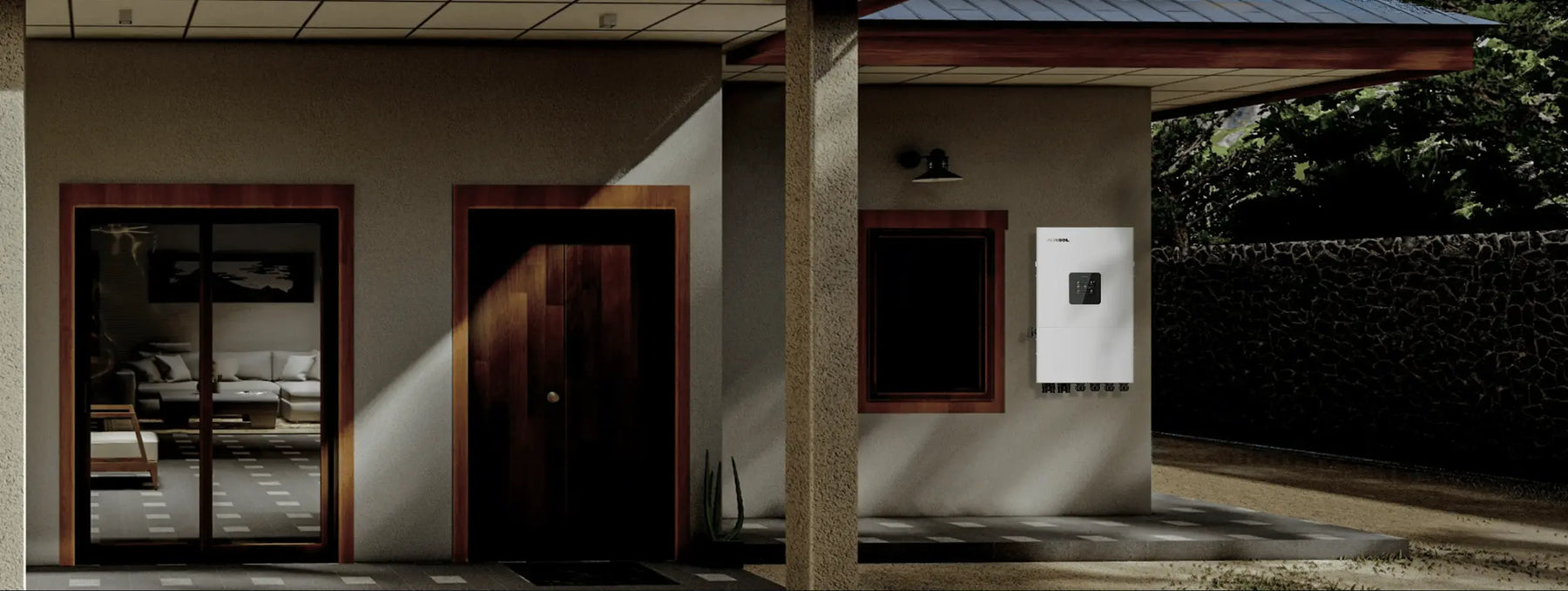
What is the Difference Between a Hybrid Inverter and a Normal Inverter?
When setting up a solar power system for your home, choosing the right inverter can make a big difference in performance and energy efficiency.
The question many homeowners ask is - what is the difference between a hybrid inverter and a normal inverter? Let’s explore how both work and which one might be the right fit for your home.
Hybrid Inverter vs Normal Inverter
Both hybrid and normal inverters convert DC (direct current) from solar panels into AC (alternating current) for home use. However, a hybrid inverter combines the functions of a traditional inverter and a battery inverter.
This allows it to not only convert power but also manage energy storage for later use.
In contrast, a normal inverter only converts solar energy for immediate use. It cannot store excess energy in a battery system. That’s why hybrid inverters are often chosen by homeowners looking for more flexibility and energy independence.
What is a Hybrid Inverter?

A hybrid inverter is a smart device that connects your solar panels, battery storage, and the utility grid. It intelligently manages power distribution, storing excess energy in batteries during the day and using it when solar production drops or during power outages.
This type of inverter is ideal for off-grid power systems or homes that want solar energy storage for uninterrupted power supply.
Leading solar technology brands like Enphase Energy and Fronius International are known for producing high-quality hybrid inverters with exceptional power conversion efficiency.
Normal Inverter Explained
A normal inverter, also known as a standard or traditional inverter, is designed for grid-tied solar systems. It converts solar energy to AC power for immediate use and feeds any excess electricity back into the grid.
However, normal inverters cannot store power for backup use, meaning your home depends entirely on the utility grid. If there’s a power outage, your solar system shuts down automatically for safety reasons.
Benefits of Hybrid Inverters
Choosing a hybrid inverter offers several practical advantages for modern homes:
-
Energy Storage: Hybrid inverters allow you to store unused solar energy in batteries for later use.
-
Energy Independence: Rely less on the utility grid and enjoy continuous power, even during blackouts.
-
Optimized Efficiency: Smart energy management ensures you use solar power efficiently.
-
Future-Ready: Hybrid inverters are compatible with both on-grid and off-grid systems.
-
Cost Savings: Reduce your electricity bills by using stored solar energy during peak hours.
If you’re planning a hybrid inverter installation, consider models that integrate smoothly with solar battery systems for long-term reliability.
Solar Inverter vs Hybrid Inverter
The main distinction between a solar inverter (normal inverter) and a hybrid inverter lies in battery backup. A solar inverter works great for grid-tied systems where consistent power supply is available.
On the other hand, a hybrid inverter is a smarter solution for those who want a mix of grid support and energy storage. With the rise of solar technology, hybrid systems have become the preferred choice for homeowners who want the best of both worlds, efficiency and flexibility.
Choosing the Right Inverter for Your Home
When selecting between a hybrid and a normal inverter, consider:
-
Power Needs: If you experience frequent power cuts, a hybrid inverter is ideal.
-
Budget: Normal inverters are more affordable, while hybrid ones require a higher initial investment but offer long-term benefits.
-
System Type: If you want to go off-grid or store power, a hybrid inverter is a better option.
-
Future Plans: Planning to expand your solar setup later? Go hybrid for easy scalability.
If you’re ready to explore top-rated inverters, check out our Hybrid Inverter Collection at Direct Solar Power to find the perfect match for your solar needs.
Hybrid Inverter Installation Guide

Installing a hybrid inverter requires professional expertise. Here’s a general guide to what the process involves:
-
Assessment: Determine your energy needs and the right inverter capacity.
-
Mounting: Install the inverter close to your solar panels and battery bank.
-
Wiring: Connect solar panels, batteries, and the inverter safely.
-
Configuration: Set up system parameters for optimal energy flow.
-
Testing: Run performance tests to ensure efficient energy conversion.
Always hire a certified technician for hybrid inverter installation to ensure safety and compliance with local grid standards.
Conclusion
Understanding the difference between a hybrid inverter and a normal inverter helps you make a smarter choice for your home’s solar setup.
While normal inverters are cost-effective for grid-connected homes, hybrid inverters offer energy independence, backup power, and higher efficiency, making them a future-ready solution.
Explore Inverters and Hybrid Inverters at Direct Solar Power and start your journey toward a more sustainable, self-sufficient home.
Frequently Asked Questions
1. What is the primary function of a hybrid inverter?
A hybrid inverter converts solar power into usable energy and manages battery charging and discharging for stored energy use.
2. Can a normal inverter work without a battery?
Yes, a normal inverter functions without a battery, using grid power when solar energy is unavailable.
3. Are hybrid inverters more expensive than normal inverters?
Yes, hybrid inverters generally cost more due to their advanced features and battery storage capability.
4. How do hybrid inverters contribute to energy efficiency?
They optimize energy usage by storing excess solar power and minimizing dependency on the grid.
5. Is it possible to retrofit a hybrid inverter into an existing solar system?
Yes, many hybrid inverters can be added to existing systems, but compatibility and wiring should be checked by professionals.

Leave a comment